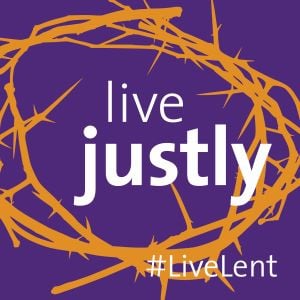 Atticus Finch, the hero of Harper Lee's iconic American novel and adapted stage play, "To Kill A Mockingbird," delivers a powerful message to us as we near the mid-point of our Lenten journey--to understand another person, we need to walk in his shoes and crawl around in his skin. As the trial of Tom Robinson unfolded at New York's Shubert Theatre, I was moved to tears--cognizant of the deep divisions roiling our country at present, decades after the 1930s setting of the story, and aware of the deep longing for transformation and peace we hold in our hearts.
Atticus Finch, the hero of Harper Lee's iconic American novel and adapted stage play, "To Kill A Mockingbird," delivers a powerful message to us as we near the mid-point of our Lenten journey--to understand another person, we need to walk in his shoes and crawl around in his skin. As the trial of Tom Robinson unfolded at New York's Shubert Theatre, I was moved to tears--cognizant of the deep divisions roiling our country at present, decades after the 1930s setting of the story, and aware of the deep longing for transformation and peace we hold in our hearts.
The oft-told parable of the Pharisee and the tax collector in today's Gospel hopefully will inspire us to acknowledge and listen to the "other," to help bind up the wounds and heal the brokenness of our current national landscape. In Luke's temple drama two characters offer their prayers in strikingly different ways. The Pharisee, generally considered to be a devout man, well versed in scripture and an observer of the Law, took up his position in the temple and prayed thus: "O God, I thank you that I am not like the rest of humanity--greedy, dishonest, adulterous--or even like this tax collector. I fast twice a week, and I pay tithes on my whole income!" We can imagine the Pharisee seated in the sanctuary by himself, boasting about his piety; he sets himself apart from others both physically and emotionally; he can't identify with the rest of humanity. And he shows no need of God's mercy and forgiveness. The tax collector, on the other hand, usually regarded as a sinner and marginalized by society, stands off at a distance to indicate his unworthiness before God. He would not even raise his eyes to heaven but beat his breast and prayed, "O God, be merciful to me a sinner." Jesus tells his listeners that the tax collector went home justified but the Pharisee did not, for "everyone who exalts himself will be humbled and the one who humbles himself will be exalted."
I have been thinking a lot this Lent about how I judge the "other." How I look down on the one who holds a different ideology than I do. How I fail to listen and understand the one who inhabits another demographic than I do. How I often believe that I proclaim the truth and am therefore righteous. Who is the "other" in whose shoes we are called to walk or in whose skin we are called to crawl? A single mother working a below minimum wage job whose paycheck doesn't cover childcare? The inner city teenager whose school does not meet the educational standards or test scores of surrounding suburban communities? The Rust Belt unemployed factory worker who doesn't have a college degree and has no means of attaining one? The immigrant or refugee at our border who only seeks freedom from poverty and violence? To walk in another's shoes or crawl around in her skin is to become one with the "other," and to recognize our shared humanity. We are all beloved children of God! May we pray this Lent in the words of the tax collector: "O God, be merciful to me a sinner."



